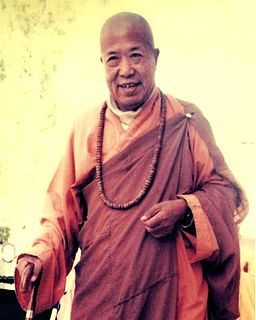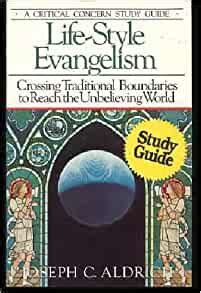Top 1200 Buddhism And Christianity Quotes & Sayings - Page 2
Explore popular Buddhism And Christianity quotes.
Last updated on October 16, 2024.
The question has often been asked; Is Buddhism a religion or a philosophy? It does not matter what you call it. Buddhism remains what it is whatever label you may put on it. The label is immaterial. Even the label 'Buddhism' which we give to the teachings of the Buddha is of little importance. The name one gives is inessential.... In the same way Truth needs no label: it is neither Buddhist, Christian, Hindu nor Moslem. It is not the monopoly of anybody. Sectarian labels are a hindrance to the independent understanding of Truth, and they produce harmful prejudices in men's minds.
There is a reason Christianity is violently opposed in our world while other religions and philosophies are tolerated... Biblical Christianity evokes violent responses from some people, because only in Christianity is there an absolute right and wrong. People hate the Bible and Christianity because of the law of God.
Why can't we simply borrow what is useful to us from Buddhism, Hinduism, Taoism, especially Zen, as we borrow from Christianity, science, American Indian traditions and world literature in general, including philosophy, and let the rest go hang? Borrow what we need but rely principally upon our own senses, common sense and daily living experience.
My spiritual path has largely been Christianity - a label that I embraced and then rejected and have partially embraced again, as my understanding of Christianity has changed over time. When I accepted the mainstream, dogmatic definition of Christianity there came a point when I had to say, "Well, if that's what a Christian is, I'm not one."
And as I stumbled onto Eastern philosophy and Buddhism, it was the first time I had ever read any sort of philosophy that really made a tremendous amount of sense. What I liked that was missing from my experience of Christianity growing up was a sort of acceptance, a sort of being OK with being imperfect and not focusing on the sin.
Once again, we are reminded that awakening, or enlightenment is not the property of Buddhism, any more than Truth is the property of Christianity. Neither the Buddha nor the Christ belongs exclusively to the communities that were founded in their names. They belong to all people of goodwill, all who are attentive to the secret which lives in the depths of their breath and their consciousness.
We may have created this projection of what God should be, as this judge or test, but the fact is, the only way we know about God is by knowing ourselves in some way. So God must be in ourselves-you can't deny that. If you say that God is somewhere else, which is what a lot of religions say, I just can't deal with it. I guess it's the difference between Buddhism, Christianity, and Judaism, or something.
Every single one of the major world faiths, whether we're talking about Hinduism, Buddhism, Confucianism, Darwinism, Judaism, Christianity and Islam, have all come to the conclusion that what holds us back from our better self is ego, selfishness, greed, unkindness, hatred. And it all springs from a sense of thwarted ego.
[Buddhism and Christianity] are in one sense parallel and equal; as a mound and a hollow, as a valley and a hill. There is a sense in which that sublime despair is the only alternative to that divine audacity. It is even true that the truly spiritual and intellectual man sees it as sort of dilemma; a very hard and terrible choice. There is little else on earth that can compare with these for completeness. And he who does not climb the mountain of Christ does indeed fall into the abyss of Buddha.
It is good to remember that the goal of Buddhism is to create Buddhas, not Buddhists, as the goal of Christianity is to create Christs, not Christians. In the same vein, my teachings are not meant to acquire followers or imitators, but to awaken beings to eternal truth and thus to awakened life and living.
My mom and my aunties are really devout Christians. My mom married a Muslim when I was 12, so I got teachings from both sides and then other sides because I wanted to find out which way to go. So not only Christianity and Islam, but Confucianism, Shintoism, Taoism, Buddhism, and Judaism. I tried to read everything.
The concept (of happiness) is universal. In Buddhism, it is called causeless joy, in Christianity, the kingdom of heaven within, and in Judaism it is called ashrei, an inner sense of holiness and health. Is Islam it is called falah, happiness and well-being, and in Hinduism it is called ananda, or pure bliss.
Failing at something is one thing, but Buddhism tells us that it is up to us how we interpret that failure [Buddhism] a philosophy and way of life that resonates with me I identify with it. I agree with so much of the sentiment behind it. I enjoy the liberating effect it's had on me to get back into the game Buddhism, with its concepts of karma and rebirth, have freed me from the twin fears of death and life without rugby, like life, will also come to an end.
Yet it would be unfair to the generality of our kind to ascribe to their intellectual and moral weakness the gradual divergence of Buddhism and Christianity from their primitive patterns. For it should not be forgotten that by their glorification of poverty and celibacy both these religions struck straight at the root not merely of civil society but of human existence. The blow was parried by the wisdom or the folly of the vast majority of mankind, who refused to purchase a chance of saving their souls with the certainty of extinguishing the species.
Christianity teaches that, contra fatalism, suffering is overwhelming; contra Buddhism, suffering is real; contra karma, suffering is often unfair; but contra secularism, suffering is meaningful. There is a purpose to it, and if faced rightly, it can drive us like a nail deep into the love of God and into more stability and spiritual power than you can imagine.
I know that Arnold Toynby, the great historian, said he had always hoped the religions of the world would evolve until they began to bring the very best of each tradition into one tradition. He hoped that Christianity would be the one religion that finally incorporated the values of Hinduism and Buddhism, and enriched itself with them.
I love the pure, peaceable, and impartial Christianity of Christ; I therefore hatethe corrupt, slaveholding, women-whipping, cradle-plundering, partial, and hypocritical Christianity of this land. Indeed, I can see no reason, but the most deceitful one, for calling the religion of this land Christianity. I look upon it as the climax of all misnomers, the boldest of all frauds, and the grossest of all libels.
There is perhaps nothing so admirable in Christianity and Buddhism as their art of teaching even the lowest to elevate themselves by piety to a seemingly higher order of things, and thereby to retain their satisfaction with the actual world in which they find it difficult enough to live - this very difficulty being necessary.
I do understand that America is a predominantly Christian country. A lot of morals and values are based in Christianity as opposed to Buddhism, which it's not, or Judaism, which it's not, or Islam, which it's definitely not. So I'm not going to lie to myself and just be like, 'Well you know, everybody's equal.' Because we're not.
I think oysters are more beautiful than any religion,' he resumed presently. 'They not only forgive our unkindness to them; they justify it, they incite us to go on being perfectly horrid to them. Once they arrive at the supper-table they seem to enter thoroughly into the spirit of the thing. There's nothing in Christianity or Buddhism that quite matches the sympathetic unselfishness of an oyster.
The true gospel is radically exclusive. Jesus is not a way; He is the way, and all other ways are no way at all. If Christianity would only move one small step toward a more tolerant ecumenicalism and exchange the definite article the for the indefinite article a, the scandal would be over, and the world and Christianity could become friends. However, whenever this occurs, Christianity ceases to be Christianity, Christ is denied, and the world is without a Savior.
As for Christianity's alleged concern with truth, Christian faith is to free inquiry what the Mafia is to free enterprise. Christianity may be represented as a competitor in the realm of ideas to be considered on the basis of its merits, but this is mere disguise. Like the Mafia, if Christianity fails to defeat its competition by legitimate means (which is a forgone conclusion), it resorts to strong-arm tactics. Have faith or be damned - this biblical doctrine alone is enough to exclude Christianity from the domain of reason.
Yet Buddhism is four hundred years older than Christianity, and if it's not a universal religion I don't know what a universal religion is. There's also a strong focus on selectionism and the notion that religion plays a functional role in the evolutionary process. But religion is dysfunctional all the time, as well as functional. It's not so simple.
Christianity can be built around isolating ourselves from evildoers and sinners, creating a community of religious piety and moral purity. That’s the Christianity I grew up with. Christianity can also be built around joining with the broken sinners and evildoers of our world crying out to God, groaning for grace. That’s the Christianity I have fallen in love with.
So herein lies the choice for those of us who are Christians. We can either stay within the Christianity we have mastered with the Jesus we have domesticated, or we can leave Christianity as a destination, embrace Christianity as a way of life, and then journey to reality, where God is present and living in every person, every human community, and all creation.
The cartoonists treated Islam the same way they treat Christianity, Buddhism, Hinduism and other religions. And by treating Muslims in Denmark as equals they made a point: we are integrating you into the Danish tradition of satire because you are part of our society, not strangers. The cartoons are including, rather than excluding, Muslims.
My mother was a spiritualist. We had weekly séances at our house with a neighbor who was a medium and various friends, and so I was brought up with the idea that there are many realms of being all around us. So that prepared me for Buddhism, and especially Tibetan Buddhism with all its talk of different realms and dimensions of being.
With an abstract idea it is possible to enter into a relation of formal knowledge, to become enthusiastic about it, and perhaps even to put it into practice; but it can never be followed in personal obedience. Christianity without the living Christ is inevitably Christianity without discipleship, and Christianity without discipleship is always Christianity without Christ.
The best argument for Christianity is Christians: their joy, their certainty, their completeness. But the strongest argument against Christianity is also Christians-when they are somber and joyless, when they are self-righteous and smug in complacent consecration, when they are narrow and repressive, then Christianity dies a thousand deaths.























































